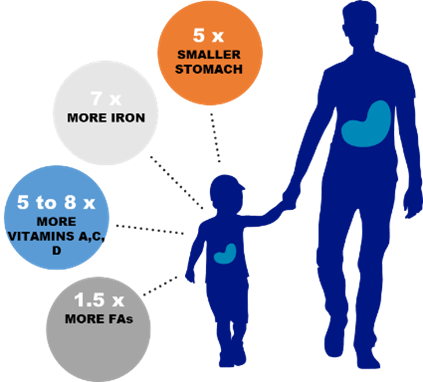The nutritional requirements of the infant and toddler are much higher than those of an adult when expressed by kg of body weight per day.1

During the first years of life, infants need nutrient-dense food in order to sufficiently cover the increased nutritional requirements especially due to their smaller stomach and limited digestion capacity in comparison to adults. If these needs are not met, nutritional deficiencies in children can pose serious consequences. In Africa, 29.1% of children under 5 years old have stunted growth and malnutrition is responsible for 45% of infant mortality 2,3
Paediatricians play a very important role to ensure that parents are sufficiently informed to be able to make the correct choices when feeding their infants.
Listen to the conference «Specific nutritional needs, their short- & long-term impact » hosted during the 12th edition of RANI (African meeting of Infant Nutrition) the 11th of November 2021.
Speaker: Dr. Mirriam Apiyo, Paediatric specialist, Case Hospital Kampala, UGANDA.
Click here to watch this video

References
- WHO Guidelines on food fortification with micronutrients 2006
- WHO Global database on child growth and malnutrition [Consulted June 2021] link: https://www.who.int/nutgrowthdb/en.
- WHO Malnutrition [Consulted June 2021] link: https://www.who.int/news-room/fact-sheets/detail/malnutrition
BA22-088
